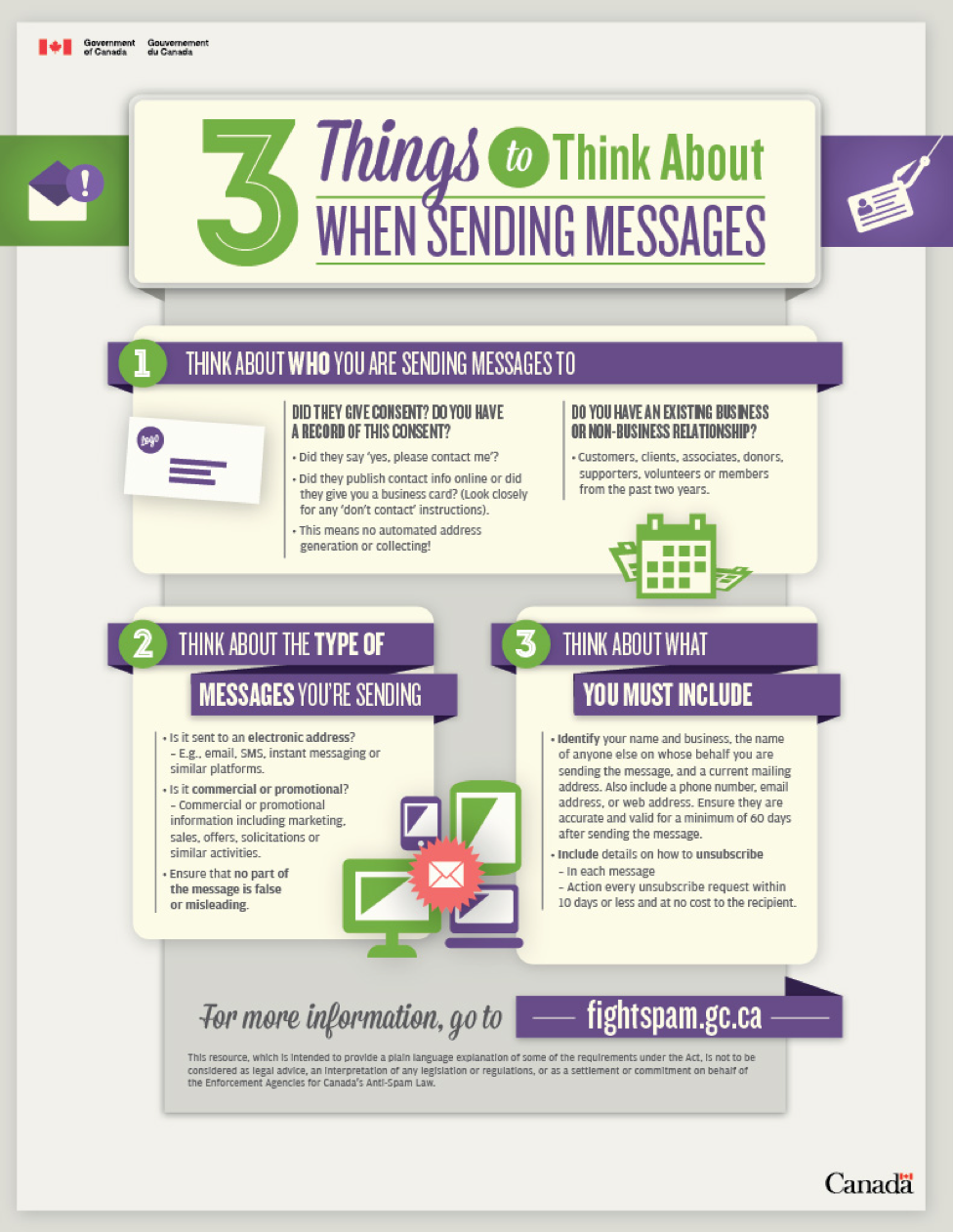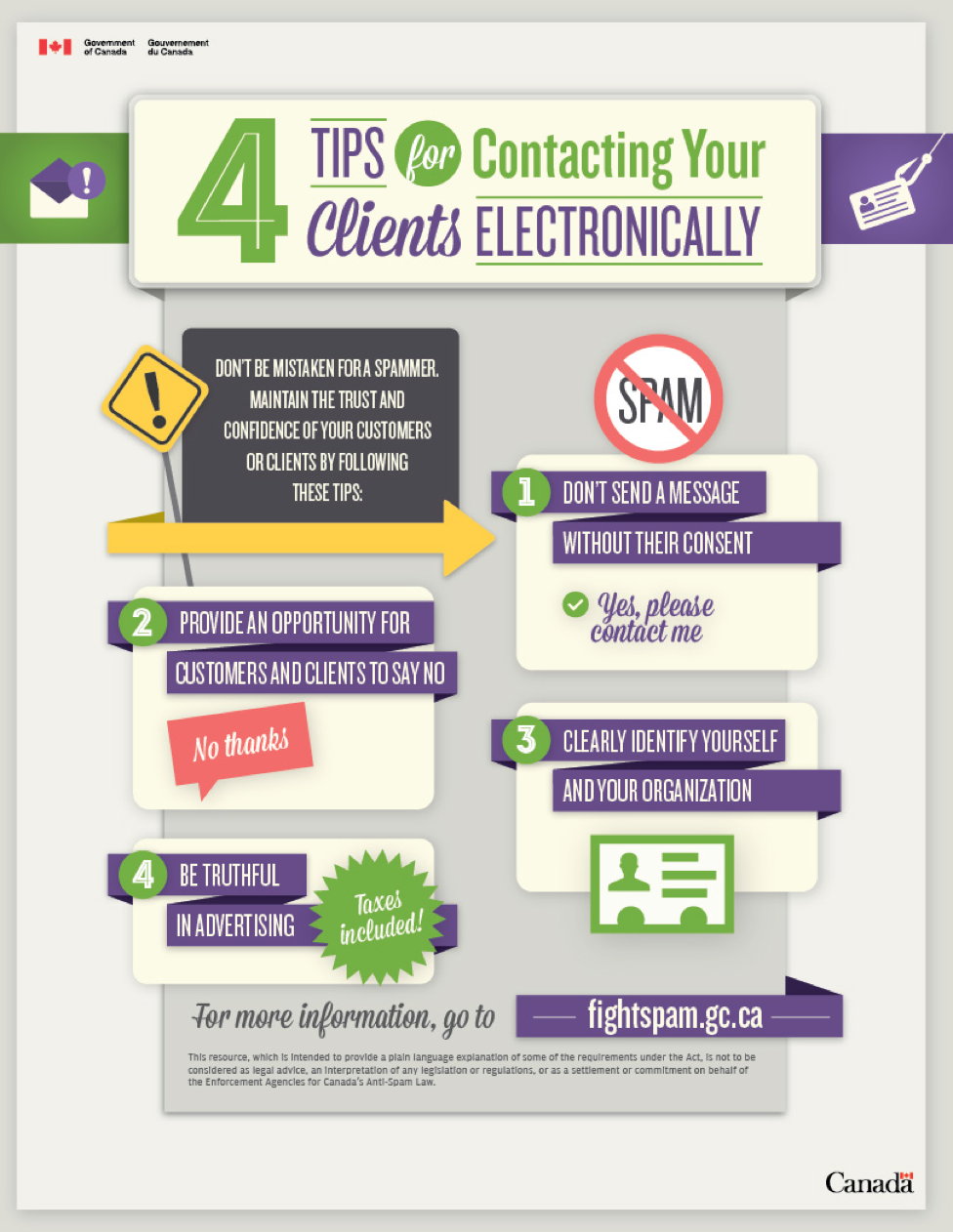GreenRope Blog
Title search: ✖
|
Show All (637)
#CoolerChat (7) All About GreenRope (172) Content Marketing (66) CRM (191) Customer Experience (79) Digital Transformation (8) Email Marketing (6) Event Recaps (2) Everything Small Business (46) How-To (136) In the Clearing with Lars (25) Infographics (4) Marketing (149) Marketing Automation (60) Monthly Updates (26) Press Release (1) Sales (76) SMB (140) Social Media (20) Tidbits for You (116) Websites & SEO (4) Weekly Roundup (16)
10 Surprising Things You Didn't know about Client Services & Search Marketing Manager, Lisa Frampton
Disqualifying Leads Without Alienating Them as Future Customers - Part 2: Cultivating Non-Leads with Automated Marketing
4 Ways to Get Your Email Marketing in Front of the Right Audience Through Personalization & Segmentation
Total Cost of Ownership: What does it mean and how can you avoid costly, unsuccessful implementations.
|
Canadian Anti-Spam Law (CASL) - Are you ready for July 1?By Jill Dimel You may have heard of it. You may have dismissed the need to know the facts. You might believe it doesn’t apply to your marketing program. However, if you are a marketer, it is vital you know the basics about the Canadian Anti-Spam Law as we near the full enforcement date of July 1, 2017. Here are a few important details you should know. Please note: this article is designed to briefly touch on a few basics of CASL law. We advise you to seek legal counsel for comprehensive information or consultation about CASL compliance. What is CASL?The Canadian Anti-Spam Law (CASL) is an anti-spam law that applies to all electronic messages organizations sent in connection with a “commercial activity.” The main feature of the law requires Canadian and global organizations to obtain consent from recipients before sending commercial electronic messages (CEMs) within, from or to Canada. CEMs include, but are not limited to emails, texts, instant messages, direct messages on social media or other electronic messages that encourage participation in a commercial activity. Another provision in the law worth noting is pre-selected checkboxes on opt-in forms are illegal under CASL law. It is illegal to email contacts obtained in this way because the subscriber has not willing selected to option to be included in a mailing list. Why is this law important to non-Canadian businesses? The legislation applies not only to Canadian businesses, but any organization that sends CEMs to Canadian recipients. If you have prospects or customers based in Canada, you are required to be in compliance with CASL for your marketing communications. Why now? CASL went into effect in July of 2014. Lawmakers built in a three-year transition period allowing time for businesses to obtain express consent from subscribers with current implied consent. The three-year transition period for commercial electronic messages will end on July 1, 2017. After that date, senders may only send to recipients who have given express consent or whose implied consent is valid under CASL (ie, 24 months after a purchase or six months after an inquiry).
It is important to note enforcement of the law will likely become more rigorous beginning July 1, 2017. Fines for violation of CASL can be significant. There was a recent violation that resulted in a fine of 30 million CAD. In addition to stricter enforcement from Canadian authorities, the private right of action (PRA) will come into force on July 1, which will allow any individual to sue any organization they believe is sending spam. PRA Violations can result in fines of $200 per violation, up to $1 million per day. Action Plan:We recommend you assess your compliance with CASL prior to July 1, 2017 and set up an action plan for maintaining your compliance moving forward. You can obtain more information at these websites: http://crtc.gc.ca/eng/internet/anti.htm http://fightspam.gc.ca/eic/site/030.nsf/eng/home Please note: This article is for informational purposes only. It is not intended as legal advice, nor does it include all of the terms of the law. Please seek legal counsel familiar with CASL to answer questions and provide feedback for compliance with CASL.
|

